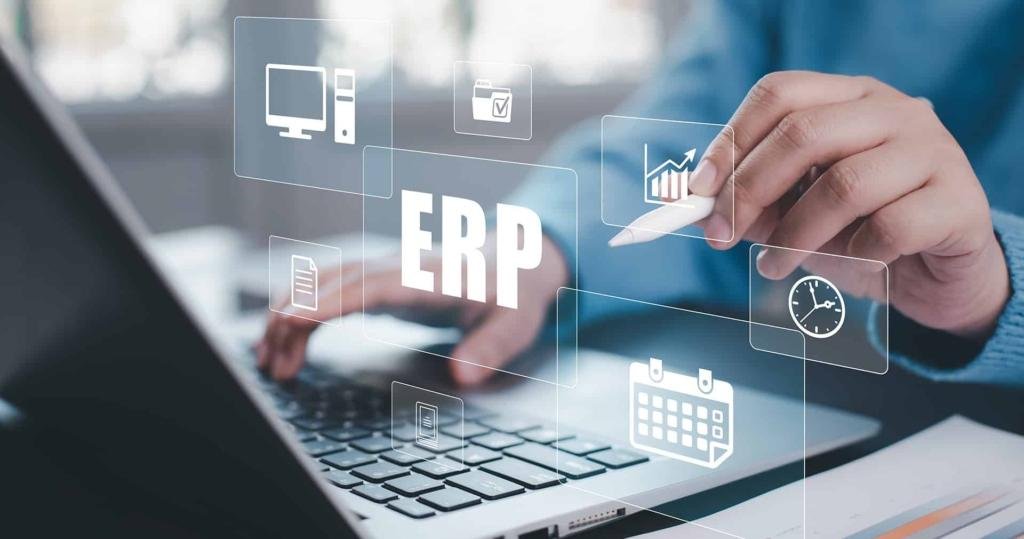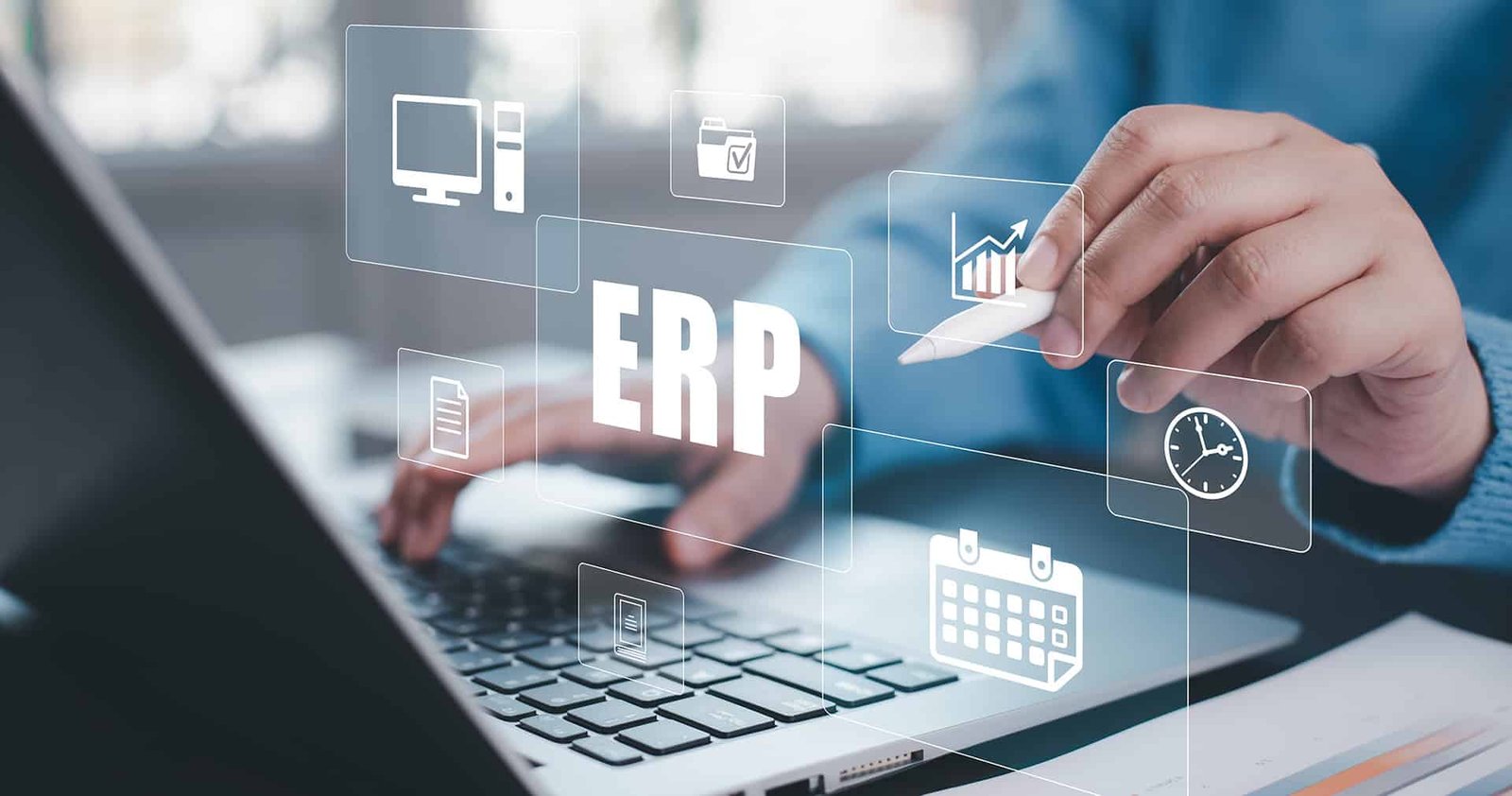ERP for UAE Businesses: In just a short time, the UAE has become a leading hub for business and innovation. As competition increases and the need to operate efficiently rises, businesses in the UAE are adopting Enterprise Resource Planning (ERP) systems to improve processes and growth.
By 2025, ERP technology will provide even more importance and offer tremendous benefits to companies that wish to remain competitive and agile.
Table of Contents
14 Benefits of ERP for UAE Businesses
Understanding the benefits of ERP for businesses in the UAE in 2025 can help organizations maximize their use of these systems. Let’s checkout the top 14 benefits of ERP systems for business in UAE.

1. Streamlined Operations and Integrated Processes
Enterprise Resource Planning (ERP) unifies business processes into one central solution & platform.
In UAE businesses where individual functions may be managed by different departments and may take place in different locations, integration helps to create a seamless embedding of finance resources, supply chain, human resources, sales, and manufacturing all into one system, breaking down silos across operations, resulting in transformative speed, fewer mistakes, and better operational efficiencies.
2. Real-Time Access to Business Data
Having access to the ERP system allows business leaders in the UAE to observe how departments are performing real-time. Metrics such as inventory levels, sales figures and financial statements with easily accessible data, aid in decision-making and make the organization more capable of responding to a changing market.
3. Improved financial management and compliance
The regulatory landscape in the UAE is highly sophisticated, encompassing VAT implementation and various financial compliance requirements. ERP software in Dubai streamlines the accurate calculation of taxes, billing and financial reporting by automating calculations. This decreases manual errors, maintains compliance with changing regulations, and decreases the risks of tax reporting.
4. Efficient Inventory and Supply Chain Management
Businesses in the UAE engaged in retail, manufacturing, and logistics find enormous value in deploying an ERP solution. An ERP solution provides real-time inventory management, reduces stock-outs, and streamlines the procurement process. Supply chain modules allow from end-to-end visibility, allowing organizations to lower carrying costs and improve order fulfillment.
5. Scalability for Future Growth
As organizations in the UAE continue to expand both locally and globally, you’ll be able to size the ERP system to accommodate new users, additional transactions, and new business processes. Reducing disruptive reconfigurations of systems will save costs and support productivity gains over time.
6. Improved Customer Relationship Management (CRM)
ERP provides a suite of integrated CRM tools that allow organizations to create depth in customer profiles, track all interactions with that customer, and recommend personalized marketing and sales approaches. This data allows firms in the UAE to enhance their current customer loyalty and improve their overall service.
7. Increased Security and Data Privacy
As data privacy become increasingly important in the UAE, ERP systems offer advanced tools to enhance protection. Sensitive company data is safeguarded from breaches and unauthorized access through role-based access control, data encryption, and audit trails.
8. Cost Efficiency and Resource Optimization
ERP not only reduces licensing and maintenance expenditures but also decreases the number of disconnected software systems. Greater resource planning will also enable firms to decrease labor, time and material usage to significantly enhance cost efficiency.
9. Better Collaboration and Communication
Through a centralized information repository, ERP systems guarantee that authorized employees in different locations and departments have reliable access to the same data. This facilitates greater collaboration, improves transparency, and advances problem-solving capabilities, benefits that can be especially significant for businesses in the UAE.
10. Powerful Analytics and Reporting Tools
An ERP system typically contains advanced reporting and analytics tools that will allow you to monitor KPIs as well as business trends. This will allow UAE businesses to spot opportunities for growth, accurately forecast demand, and make strategic decisions.
11. Mobile and Cloud Accessibility
Modern ERP systems provide mobile and cloud availability for ERP access, allowing employees to remain productive and stay engaged from any location. For the fast-paced UAE market, mobile ERP access allows you to work and make decisions away from your desk.
12. Seamless Integration with Business Tools
An ERP integrates with specific applications like e-commerce, payment processors, or marketing tools to create one technology platform that reduces redundancy and increases productivity.
13. Improved Vendor and Supplier Management
An ERP system provides businesses in the UAE with an automated process for managing suppliers, including contract tracking, delivery dates, and vendor performance. Creating a streamlined process helps nurture existing vendor and supplier relationships, increase supply reliability, and reduce costs.
14. Competitive Advantage in the UAE Market
Beyond simply adding agility and efficiency to UAE businesses, ERP systems help companies remain competitive. Improved customer service, streamlined costs, and faster decision-making position companies to seize market opportunities, even during times of uncertainty and economic downturns.
Why ERP is a Must-Have for UAE Businesses in 2025
The UAE business scenario is marked by rapid expansion and an increasing demand for operational efficiency, in line with the government’s vision for a smart economy. ERP for UAE Businesses
By 2025, the benefits of ERP for UAE businesses will extend beyond improving operations to driving strategic transformation and strengthening compliance in an increasingly competitive marketplace.
Businesses that implement ERP systems are better positioned to respond to market changes, manage costs more effectively, and maintain high standards of service and compliance.
Read to know: The Future of Software Development in Dubai






Leave a Comment